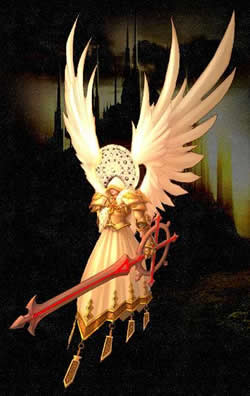the expression of emotion in man and animals-第34部分
按键盘上方向键 ← 或 → 可快速上下翻页,按键盘上的 Enter 键可回到本书目录页,按键盘上方向键 ↑ 可回到本页顶部!
————未阅读完?加入书签已便下次继续阅读!
raction was completely overmastered; and her brow remained unruffled。 Had the pyramidal; corrugator; and orbicular muscles been as little obedient to the will; as they are in many persons; they would have been slightly acted on; and then the central fasciae of the frontal muscle would have contracted in antagonism; and her eyebrows would have become oblique; with rectangular furrows on her forehead。 Her countenance would then have expressed still more plainly than it did a state of dejection; or rather one of grief。
Through steps such as these we can understand how it is; that as soon as some melancholy thought passes through the brain; there occurs a just perceptible drawing down of the corners of the mouth; or a slight raising up of the inner ends of the eyebrows; or both movements combined; and immediately afterwards a slight suffusion of tears。 A thrill of nerve…force is transmitted along several habitual channels; and produces an effect on any point where the will has not acquired through long habit much power of interference。 The above actions may be considered as rudimental vestiges of the screaming…fits; which are so frequent and prolonged during infancy。 In this case; as well as in many others; the links are indeed wonderful which connect cause and effect in giving rise to various expressions on the human countenance; and they explain to us the meaning of certain movements; which we involuntarily and unconsciously perform; whenever certain transitory emotions pass through our minds。 CHAPTER VIII。
Joy; HIGH SPIRITS; LOVE; TENDER FEELINGS; DEVOTION。
Laughter primarily the expression of joyLudicrous ideas Movements of the features during laughterNature of the sound producedThe secretion of tears during loud laughter Gradation from loud laughter to gentle smilingHigh spirits The expression of loveTender feelingsDevotion。
JOY; when intense; leads to various purposeless movements to dancing about; clapping the hands; stamping; &c。; and to loud laughter。 Laughter seems primarily to be the expression of mere joy or happiness。 We clearly see this in children at play; who are almost incessantly laughing。 With young persons past childhood; when they are in high spirits; there is always much meaningless laughter。 The laughter of the gods is described by Homer as 〃the exuberance of their celestial joy after their daily banquet。〃 A man smilesand smiling; as we shall see; graduates into laughter at meeting an old friend in the street; as he does at any trifling pleasure; such as smelling a sweet perfume。'1' Laura Bridgman; from her blindness and deafness; could not have acquired any expression through imitation; yet when a letter from a beloved friend was communicated to her by gesture…language; she 〃laughed and clapped her hands; and the colour mounted to her cheeks。〃 On other occasions she has been seen to stamp for joy。'2'
'1' Herbert Spencer; ‘Essays Scientific;' &c。; 1858; p。 360。
Idiots and imbecile persons likewise afford good evidence that laughter or smiling primarily expresses mere happiness or joy。 Dr。 Crichton Browne; to whom; as on so many other occasions; I am indebted for the results of his wide experience; informs me that with idiots laughter is the most prevalent and frequent of all the emotional expressions。 Many idiots are morose; passionate; restless; in a painful state of mind; or utterly stolid; and these never laugh。 Others frequently laugh in a quite senseless manner。 Thus an idiot boy; incapable of speech; complained to Dr。 Browne; by the aid of signs; that another boy in the asylum had given him a black eye; and this was accompanied by 〃explosions of laughter and with his face covered with the broadest smiles。〃 There is another large class of idiots who are persistently joyous and benign; and who are constantly laughing or smiling。'3' Their countenances often exhibit a stereotyped smile; their joyousness is increased; and they grin; chuckle; or giggle; whenever food is placed before them; or when they are caressed; are shown bright colours; or hear music。 Some of them laugh more than usual when they walk about; or attempt any muscular exertion。 The joyousness of most of these idiots cannot possibly be associated; as Dr。 Browne remarks; with any distinct ideas: they simply feel pleasure; and express it by laughter or smiles。 With imbeciles rather higher in the scale; personal vanity seems to be the commonest cause of laughter; and next to this; pleasure arising from the approbation of their conduct。
'2' F。 Lieber on the vocal sounds of L。 Bridgman; ‘Smithsonian Contributions;' 1851; vol。 ii。 p。 6。
'3' See; also; Mr。 Marshall; in Phil。 Transact。 1864; p。 526。
With grown…up persons laughter is excited by causes considerably different from those which suffice during childhood; but this remark hardly applies to smiling。 Laughter in this respect is analogous with weeping; which with adults is almost confined to mental distress; whilst with children it is excited by bodily pain or any suffering; as well as by fear or rage。 Many curious discussions have been written on the causes of laughter with grown…up persons。 The subject is extremely complex。 Something incongruous or unaccountable; exciting surprise and some sense of superiority in the laugher; who must be in a happy frame of mind; seems to be the commonest cause。'4' The circumstances must not be of a momentous nature: no poor man would laugh or smile on suddenly hearing that a large fortune had been bequeathed to him。 If the mind is strongly excited by pleasurable feelings; and any little unexpected event or thought occurs; then; as Mr。 Herbert Spencer remarks;'5' 〃a large amount of nervous energy; instead of being allowed to expend itself in producing an equivalent amount of the new thoughts and emotion which were nascent; is suddenly checked in its flow。〃 。 。 。 〃The excess must discharge itself in some other direction; and there results an efflux through the motor nerves to various classes of the muscles; producing the half…convulsive actions we term laughter。〃 An observation; bearing on this point; was made by a correspondent during the recent siege of Paris; namely; that the German soldiers。 after strong excitement from exposure to extreme danger; were particularly apt to burst out into loud laughter at the smallest joke。 So again when young children are just beginning to cry; an unexpected event will sometimes suddenly turn their crying into laughter; which apparently serves equally well to expend their superfluous nervous energy。
'4' Mr。 Bain (‘The Emotions and the Will;' 1865; p。 247) has a long and interesting discussion on the Ludicrous。 The quotation above given about the laughter of the gods is taken from this work。 See; also; Mandeville; ‘The Fable of the Bees;' vol。 ii。 p。 168。
'5' ‘The Physiology of Laughter;' Essays; Second Series; 1863; p。 114。
The imagination is sometimes said to be tickled by a ludicrous idea; and this so…called tickling of the mind is curiously analogous with that of the body。 Every one knows how immoderately children laugh; and how their whole bodies are convulsed when they are tickled。 The anthropoid apes; as we have seen; likewise utter a reiterated sound; corresponding with our laughter; when they are tickled; especially under the armpits。 I touched with a bit of paper the sole of the foot of one of my infants; when only seven days old; and it was suddenly jerked away and the toes curled about; as in an older child。 Such movements; as well as laughter from being tickled; are manifestly reflex actions; and this is likewise shown by the minute unstriped muscles; which serve to erect the separate hairs on the body; contracting near a tickled surface。'6' Yet laughter from a ludicrous idea; though involuntary; cannot be called a strictly reflex action。 In this case; and in that of laughter from being tickled; the mind must be in a pleasurable condition; a young child; if tickled by a strange man; would scream from fear。 The touch must be light; and an idea or event; to be ludicrous; must not be of grave import。 The parts of the body which are most easily tickled are those which are not commonly touched; such as the armpits or between the toes; or parts such as the soles of the feet; which are habitually touched by a broad surface; but the surface on which we sit offers a marked exception to this rule。 According to Gratiolet;'7' certain nerves are much more sensitive to tickling than others。 From the fact that a child can hardly tickle itself; or in a much less degree than when tickled by another person; it seems that the precise point to be touched must not be known; so with the mind; something unexpected a novel or incongruous idea which breaks through an habitual train of thought appears to he a strong element in the ludicrous。
'6' J。 Lister in ‘Quarterly Journal of Microscopical Science;' 1853; vol。 1。 p。 266。
The sound of laughter is produced by a deep inspiration followed by short; interrupted; spasmodic contractions of the chest; and especially of the diaphragm。'8' Hence we hear of 〃laughter holding both his sides。〃 From the shaking of the body; the head nods to and fro。 The lower jaw often quivers up and down; as is likewise the case with some species of baboons; when they are much pleased。
During laughter the mouth is opened more or less widely; with the corners drawn much backwards; as well as a little upwards; and the upper lip is somewhat raised。 The drawing back of the corners is best seen in moderate laughter; and especially in a broad smile the latter epithet showing how the mouth is widened。 In the accompanying figs。 1…3; Plate III。; different degrees of moderate laughter and smiling have been photographed。 The figure of the little girl; with the hat is by Dr。 Wallich; and the expression was a genuine one; the other two are by Mr。 Rejlander。 Dr。 Duchenne repeatedly insists'9' that; under the emotion of joy; the mouth is acted on exclusively by the great zygomatic muscles; which serve to draw the corners backwards and upwards; but judging from the manner in which the upper teeth are always exposed during laughter and broad smiling; as well as from my own sensations; I cannot doubt that some of the muscles running to the upper lip are likew




